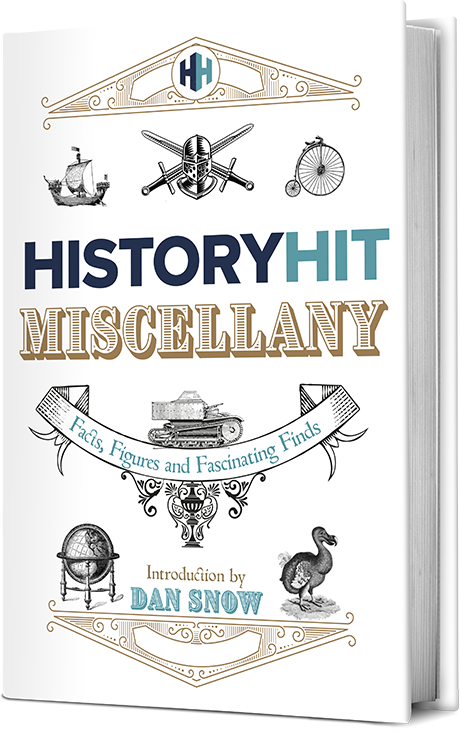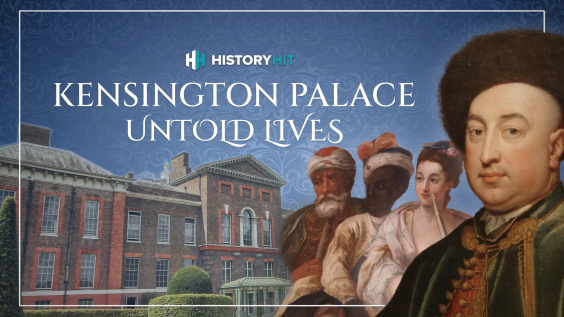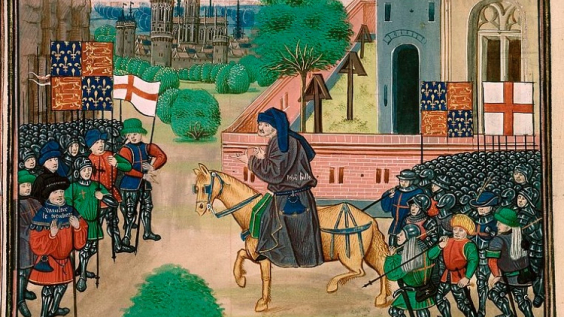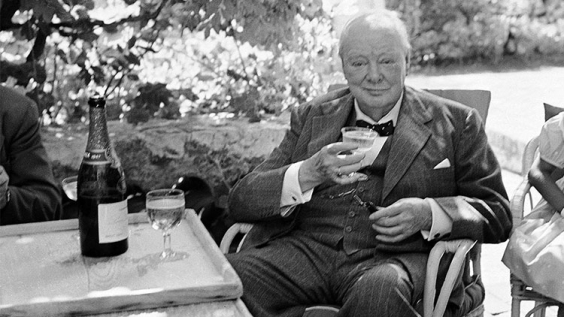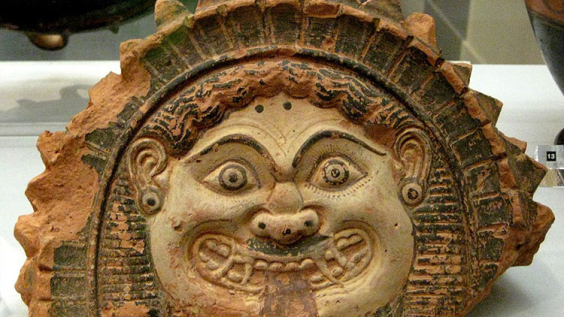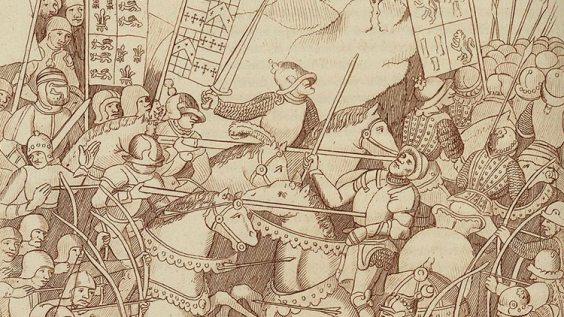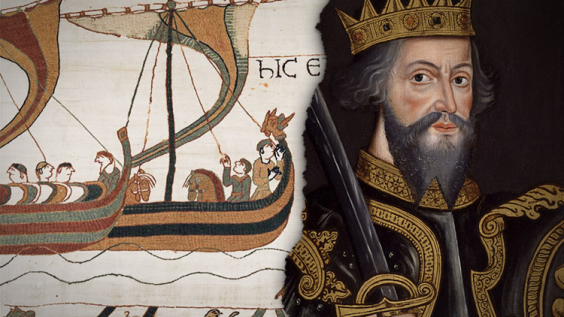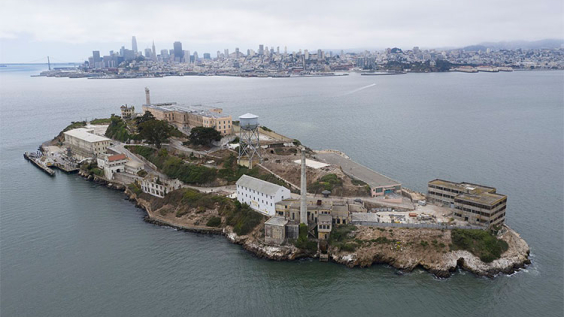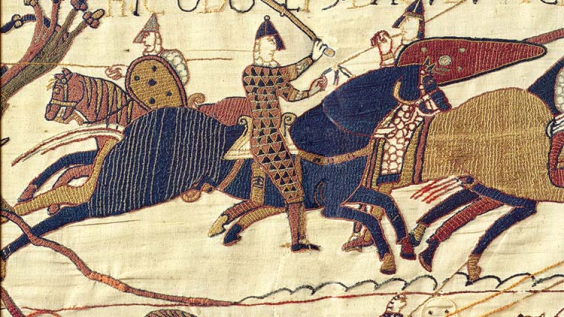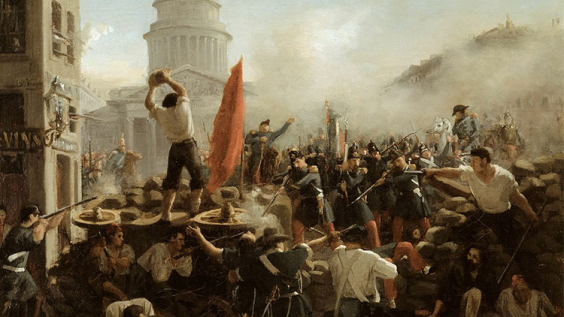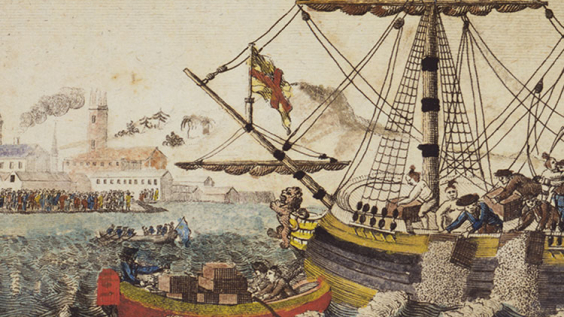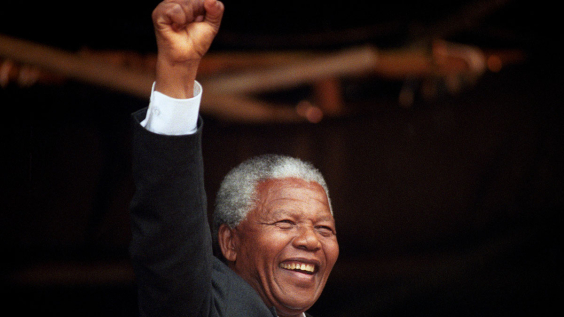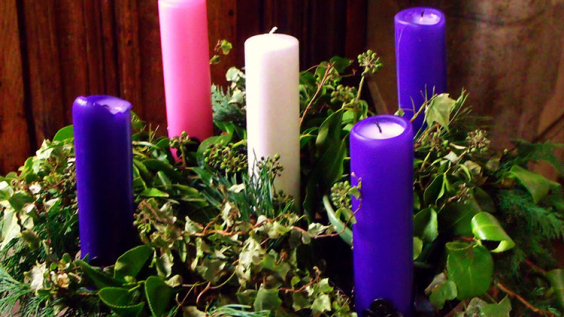
This article is an edited transcript from Life as a Woman in World War Two with Eve Warton, available on History Hit TV.
 Listen Now
Listen NowIn 1939, I was a schoolgirl without a care in the world, thoroughly enjoying myself and rather sort of childish in many ways. I really used to look forward to the holidays. School wasn’t my favourite thing.
We lived next to a whole lot of boys so we played a lot of tennis and we went canoeing and really had good fun. The best thing was going to Brooklands (the world’s first purpose-built motor racing circuit, located in Weybridge, Surrey) and watching the cars racing around.
But I was never allowed to go anywhere by myself; I was always chaperoned from start to finish. I was a bit of a tomboy. I looked at all the boys just like extra mothers. In fact, my mother was getting a little bit worried because I lived in shorts and shirts and wasn’t very female at all.
Her friends go to fight

Condensation trails left behind from a dogfight in the Battle of Britain.
One of the boys in my groups of friends was already in the RAF when the war broke out, and so he became a pathfinder. Another one was just leaving university, where he had learned to fly, and he joined the RAF straight away and fought in the Battle of Britain. The other boys had around two more years at university, which they were allowed to do.
After they had completed their studies, one of them – who was a conscientious objector but wanted to do his bit – became an ambulance driver, which was a very brave thing to do because you were right in the thick of it. The other ones did rather secret war work. I never really discovered much about it.
When they came back for leaves and holidays, it was as if there wasn’t a war. We played hide-and-seek and had good fun. But it was a strange atmosphere. We were carrying on as usual, almost ignoring the war as if it was something you had to put up with.
That is until you started seeing the dogfights in the sky, and then it became a little bit more real. And then, when one after the other the boys got killed, it was horribly real. I found that very difficult.
 Watch Now
Watch NowThe war turns real
Three of them were killed quite early on. I was so distressed about it that I very nearly lost my faith, which was strange for me because I’d always been very spiritually minded, and I started blaming God for it. But the sense that it couldn’t possibly be His will that we should kill each other, that it was us who were stupid, was what started me beginning to think I must do something.
I then learned as a schoolgirl to become a Red Cross nurse. When I was about 15-and-a-half, I helped out with providing relief to soldiers arriving at Woking Station from Dunkirk and gave them tea and buns. It was an experience I shall never forget because it suddenly made me realise that the war was too close almost.
What really shocked me was that a lot of the soldiers were hardly wearing any clothes. They’d had to swim to the ships and there hadn’t been time to reclothe them – though anybody who had anything had given them an old blanket or jacket to put on. But despite this, they were all still holding on to their guns and this really impressed me. I thought, “Goodness, they’re ready to go and have another fight”.
Several were traumatised, just staring and not even connecting with you. Several had blood on their faces, and most of them were filthy, and they all looked sort of shocked. But because I was so young, I think they thought it would be rather fun to wolf whistle and, of course, being chaperoned everywhere, I thought this was a bit shocking – until I realised that they were showing they were still men.
And so I forgot all about that and started running up and down blowing kisses.
I think I grew up that day because I suddenly got the impression that, “All right, you’re down but you jolly well get up and keep going”. And this helped me quite a lot when first one and then another and then another of the friends I’d grown up with were killed. I was down for a bit but then I thought, somehow, “Stop feeling sorry for yourself and get on with it”.
 Watch Now
Watch NowThe final straw
The experience very much made me want to get involved with service. But my mother had a plan for me – that when I was 16 I’d go to a finishing school, that I’d come out and do the season, and to hell with the so-and-so war. I begged my father to change her mind but he said, “She’s been planning it for so long, darling, just get on with it and finish it. It’s only an extra year and then you can do something”.
It wasn’t really until Charles – who I was very fond of, in fact would have married – was killed that I put my foot down and said, “I must do something to help win the war.” And that’s when my mother took me to meet a plastic surgeon with whom my parents were very friendly to see if I could be of any use to him. But he obviously realised I was far too young and it was most embarrassing.
He said, “Have you ever seen a naked man?”, and I said, “No”. And he replied, “Well, my boys are so badly burnt we can’t put clothes on them; they just have to lie there and we put them in saline baths for ages. How would you manage?”.
I said that I didn’t think I would and so he said to me, “Why don’t you get away from everything, forget about all the sorrow, get on with it, and join one of the services like the WRNS (Women’s Royal Naval Service)?”. So I did and it was great fun.

Joining the “Wrens”
I’m quite a chatterbox and it was quite amusing when I went for an interview with the WRNS because I wasn’t looking where I was going on the stairs and nearly knocked Lord Mountbatten off his feet. I chatted away with him and asked him if he’d sewn on his own medals and badges, all the while having no idea who he was, and offered to be his secretary.
Anyway, I managed to pass the medical, which was very funny indeed because I was only 17-and-a-half and I hadn’t a clue what they were talking about half the time. I was then sent to Portsmouth to do a sort of initial training to see if I was of any use, and we had a choice: you could become a cook or a secretary or a boat crew member.
 Watch Now
Watch NowOf the latter I thought, “Oh, yes, I would be good at that”, imagining some sort of big boat, possibly a yacht. But my father explained it would be more like a huge rowing boat or lifeboat.
They did let me try, but I was too small; I couldn’t get on and off the boat without somebody helping me. So then I said, “Well, what about being a driver?”. But I couldn’t reach the pedals of lorries and, at that age, you were not allowed to be commissioned and other ranks did not drive cars, they only drove lorries. So that was no good.
I had a very understanding first officer who was in charge of putting people in the right categories, and it happened that he was very friendly with an eye specialist over at the HMS Daedalus airfield at Lee-on-Solent.

A radio mechanic from the Women’s Royal Naval Service is pictured at the Lee-on-Solent air station in September 1943.
The eye specialist had been having problems getting his young pilots to come and have night vision tests – they thought it was boring and unnecessary. And the girls they had doing the work were all in their mid-thirties. So he got the idea that it might be good to have a pretty sort of little sister who would lure them along.
It worked. So then he got another one – me. The first thing he said to me was, “Now, can you manage to sit in the dark with six to eight young men and give them a half-hour lecture, and then get them to do a test?”. And I said, “Oh, no problem at all. I’m used to boys. I’ve grown up with them”. It was the confidence of youth.
The eye specialist was very interested in psychology and he knew that some of the boys failed their tests even when they could see very well. And he said to me, “One of the jobs that you have to do is to report to me if you find somebody’s continually failing the test”.
I said, “Oh, I shall be good at that because I’ve got this extraordinary sort of gift where I can sense when people are stressed or something is wrong, and I’m quite good at getting them to chat about it”.
When I began to do this quite a lot I had a sense of guilt that I was sort of scheming against the pilots. But then I thought, “No, it’ll save their lives. They don’t have to be pilots. If they’re scared, they can become navigators so that they’re not responsible for the plane”.
And it was strange; as a result of this, once or twice I really did save a life.

